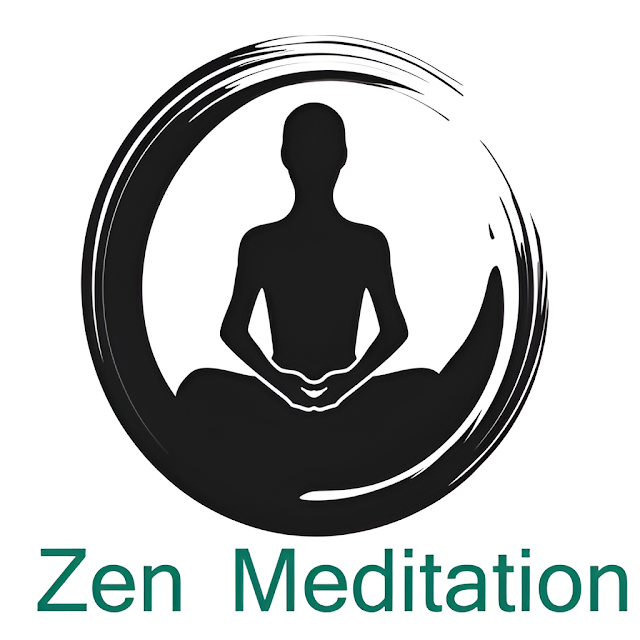Zen Meditation: A Step-By-Step Beginner Guide
In our previous posts, we took a little closer look at...
Meditation Meaning, History of Meditation, Guided Mindfulness Meditation, Movement Meditation, Spiritual Meditation, Focused Meditation, Mantra Meditation, Transcendental Meditation, Vipassana Meditation, Visualization Meditation, Progressive Relaxation Meditation, Loving-kindness meditation, Deep breathing exercises and it's Benefits, Relaxation exercises, and Yoga meditation.
Now we take a step forward with the same topic. Now we try to explore a different type of meditation, called Zen meditation.
Zen Meditation: Finding Inner Peace through Zen Philosophy
Introduction to Zen Meditation
Brief Explanation of Zen Philosophy
Importance of Meditation in Zen Practice
Setting the Tone for Achieving Inner Peace
Understanding Zen Meditation: Embracing Stillness and Clarity
What is Zen Meditation?
Historical Roots and Development
Core Principles and Objectives
- Emptiness and Clarity: Zen Meditation encourages practitioners to let go of mental clutter, attachments, and preconceptions, allowing the mind to become clear like a serene lake reflecting reality as it is.
- Present-Moment Awareness: The practice emphasizes being fully present in the here and now, fostering a deep connection with the current moment without dwelling on the past or worrying about the future.
- Non-Attachment and Acceptance: Zen teaches the art of non-attachment, urging practitioners to accept thoughts and feelings without clinging to or rejecting them, allowing them to pass like clouds in the sky.
- Direct Experience: It prioritizes experiential understanding over intellectual comprehension, believing that genuine insight comes from direct experience rather than mere conceptual knowledge.
The Profound Benefits of Zen Meditation
Mental Health Benefits:-
- Stress Reduction: Zen Meditation is a powerful tool in combating stress. By fostering a state of deep relaxation and mindfulness, it helps individuals manage stress more effectively, leading to increased emotional resilience.
- Improved Focus and Concentration: Through the practice of cultivating present-moment awareness, Zen Meditation enhances cognitive function, promoting sharper focus, and improved concentration both during meditation and in daily tasks.
- Emotional Regulation: Regular practice of Zen Meditation aids in developing emotional regulation by fostering a sense of inner peace. This can lead to a more balanced emotional state and better management of challenging emotions.
Physical Health Benefits:-
- Lowered Blood Pressure: Studies have shown that regular meditation, including Zen Meditation, can contribute to reducing blood pressure levels, thereby benefiting cardiovascular health.
- Better Sleep Quality: The calming effects of Zen Meditation can promote relaxation, leading to improved sleep quality. Practitioners often report experiencing more restful and rejuvenating sleep patterns.
- Pain Management: Zen Meditation techniques can help individuals better cope with chronic pain by altering their perception of pain and enhancing their ability to manage discomfort.
Emotional and Spiritual Well-being
- Enhanced Self-Awareness: Through introspection and self-reflection, Zen Meditation encourages a deeper understanding of oneself, fostering personal growth and self-awareness.
- Cultivation of Compassion: Practicing Zen Meditation often leads to increased empathy and compassion towards oneself and others, fostering more harmonious relationships and a deeper connection with the world.
- Spiritual Fulfillment: For many practitioners, Zen Meditation serves as a gateway to spiritual fulfillment, providing a sense of purpose, interconnectedness, and a deeper understanding of the nature of existence.
Scientific Benefits of Zen meditation
- Reduced stress and anxiety: Zen meditation can help lower the levels of cortisol, the stress hormone, and increase the levels of serotonin, the happiness hormone, in the brain ↂ.
- Improved focus and concentration: Zen meditation can enhance the activity of the prefrontal cortex, the brain region responsible for attention, planning, and decision-making ↂ.
- Increased creativity: Zen meditation can stimulate the right hemisphere of the brain, which is associated with imagination, intuition, and artistic expression ↂ.
- Enhanced self-awareness: Zen meditation can foster a deeper connection with oneself and one's emotions, leading to greater self-acceptance and self-esteem ↂ.
- Improved sleep quality: Zen meditation can promote relaxation and calmness, making it easier to fall asleep and stay asleep ↂ.
 |
| Zen Meditation Benefits |
Embarking on Your Zen Meditation Journey
Creating a Conducive Space for Meditation
- Choose a Quiet Space: Find a tranquil area free from distractions where you can sit comfortably for your meditation practice. It could be a dedicated room or a corner in your home that brings a sense of calmness.
- Set the Ambiance: Consider incorporating elements that foster relaxation, such as soft lighting, natural elements like plants, cushions or a meditation bench, and perhaps soothing background music or nature sounds.
- Declutter the Mind and Space: Clear the space of any clutter to create a serene environment that mirrors the clarity you seek in your practice. A tidy space often aids in achieving mental tranquility.
Posture and Breathing Techniques
- Seated Posture: Sit comfortably on a cushion (zafu) or a chair, keeping your spine straight yet relaxed. Choose a posture (full or half-lotus, or cross-legged) that allows you to feel stable and relaxed.
- Focus on Breath: Pay attention to your breath without altering it. Breathe naturally and gently, focusing on the sensation of the breath entering and leaving your body. This serves as an anchor for your meditation.
- Mindful Observation: While maintaining focus on your breath, observe any thoughts or sensations that arise without judgment. Acknowledge them and gently guide your attention back to your breath.
Tips for Beginners and Overcoming Common Challenges
- Start Small: Begin with short sessions, gradually increasing the duration as you become more comfortable with the practice. Consistency matters more than length.
- Be Patient and Kind to Yourself: Don't expect perfection from the start. Meditation is a journey, and your mind will wander—it's natural. Acknowledge this and gently bring your focus back each time.
- Seek Guidance and Resources: Consider joining meditation groups, attending classes, or using guided meditation apps to deepen your practice and gain insights from experienced practitioners.
- Addressing Common Challenges: Common hurdles like restlessness, distractions, or discomfort may arise. Experiment with different postures or incorporate walking meditation (Kinhin) to break the monotony.
Exploring Diverse Techniques in Zen Meditation
- Zazen (Seated Meditation)
- Koan Practice
- Walking Meditation (Kinhin)
- Chanting (Mantra Meditation)
Embracing Zen Principles in Everyday Living
Applying Mindfulness in Everyday Activities
- Mindful Eating: Practice being fully present while eating. Pay attention to the flavors, textures, and sensations of each bite. Chew slowly and savor the nourishment, fostering gratitude for the food you consume.
- Daily Chores as Meditation: Transform routine tasks like washing dishes or cleaning into mindful activities. Engage all your senses, focus on the task at hand, and immerse yourself in the present moment.
- Tech-Free Moments: Create designated periods in your day to disconnect from screens. Engage in activities like reading, walking, or simply observing nature without distractions.
Cultivating a Present-Moment Focus
- Mindful Breathing Throughout the Day: Take moments to pause and focus on your breath periodically. Whether you're commuting, working, or waiting in line, use these moments to ground yourself in the present.
- Single-Tasking Over Multi-Tasking: Resist the urge to multitask and instead, dedicate your attention to one task at a time. By doing so, you can bring more focus and efficiency to your endeavors.
- Pause and Observe: Incorporate short breaks in your day to simply observe your surroundings. Take in the sights, sounds, and sensations without judgment, allowing yourself to be fully present.
Practicing Gratitude and Simplicity
- Gratitude Journaling: Dedicate time daily to reflect on things you're grateful for. It could be simple pleasures, moments of kindness, or even challenges that provide opportunities for growth.
- Decluttering Your Space and Mind: Simplify your living space by decluttering and organizing. Similarly, declutter your mind by letting go of unnecessary worries and distractions, fostering mental clarity.
- Value Experiences Over Possessions: Embrace experiences and connections over material possessions. Cultivate meaningful relationships and cherish moments spent with loved ones.
Navigating Modern Challenges with Zen Wisdom
How Zen Meditation Helps in Coping with Modern Stressors
- Stress Reduction: In today's fast-paced world, stress is ubiquitous. Zen Meditation offers a sanctuary—a space to detach from chaos, fostering mental resilience and providing tools to manage stress more effectively.
- Cultivating Resilience: Through mindfulness and presence, practitioners develop resilience to navigate life's challenges with a clearer perspective, reducing the impact of stressors on mental and emotional well-being.
- Enhanced Emotional Regulation: Zen practices aid in regulating emotions, enabling individuals to respond rather than react impulsively to stressors, fostering a more balanced and composed approach.
Applications in Professional Life and Productivity
- Improved Focus and Clarity: Zen principles enhance focus and mental clarity, translating into increased productivity and efficiency in professional endeavors.
- Enhanced Decision-Making: By practicing mindfulness and cultivating a present-moment focus, individuals develop a deeper understanding of situations, enabling more thoughtful and effective decision-making.
- Stress Management at Work: Integrating short meditation breaks or mindfulness exercises during the workday can help alleviate workplace stress, leading to a more conducive and harmonious work environment.
Conclusion
Recap of the Benefits and Significance of Zen Meditation
- Mental Clarity and Focus: Zen Meditation enhances mental clarity and focus, fostering better decision-making and productivity.
- Emotional Resilience: It equips practitioners with tools to manage stress, regulate emotions, and navigate life's challenges with greater ease.
- Mindful Living: By incorporating Zen principles into daily life, individuals cultivate gratitude, simplicity, and an unwavering presence in each moment.
Encouragement to Embark on the Journey of Mindfulness
Closing Thoughts and Call-to-Action for Readers to Begin Their Practice
- Start Small, Aim High: Begin with short meditation sessions, incorporating mindfulness into your daily routines gradually. Consistency matters more than duration.
- Explore and Experiment: Try different techniques—Zazen, Koan practice, walking meditation, or chanting—to discover what resonates with you. Embrace the journey of self-exploration.
- Join a Community: Seek support and guidance from meditation groups, online communities, or apps. Share experiences, learn from others, and grow together on this path.



.jpg)



No comments:
Post a Comment